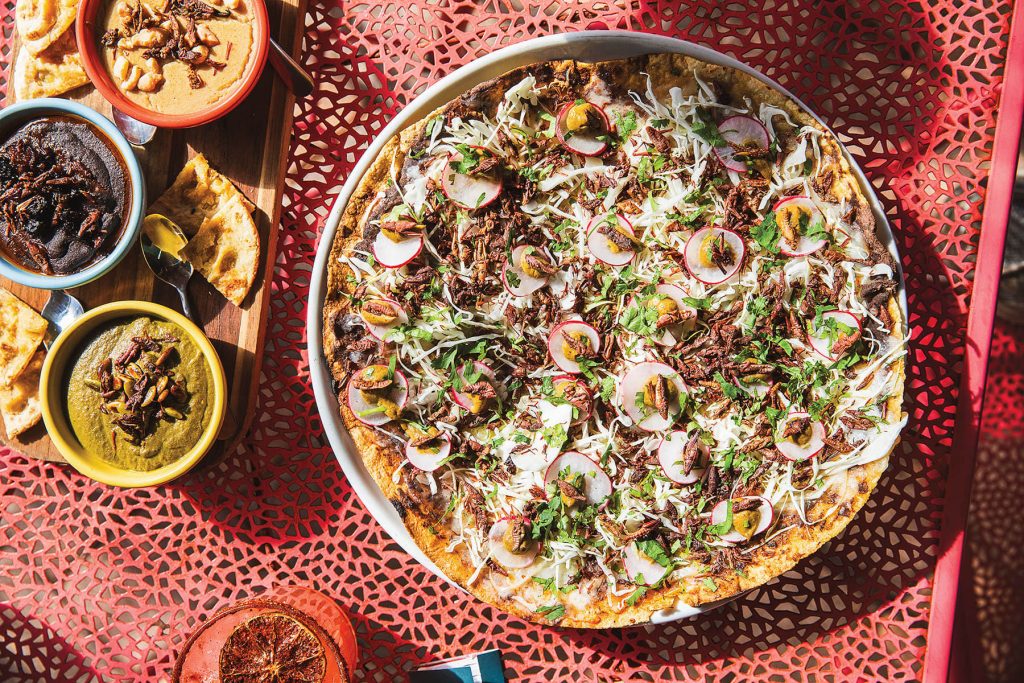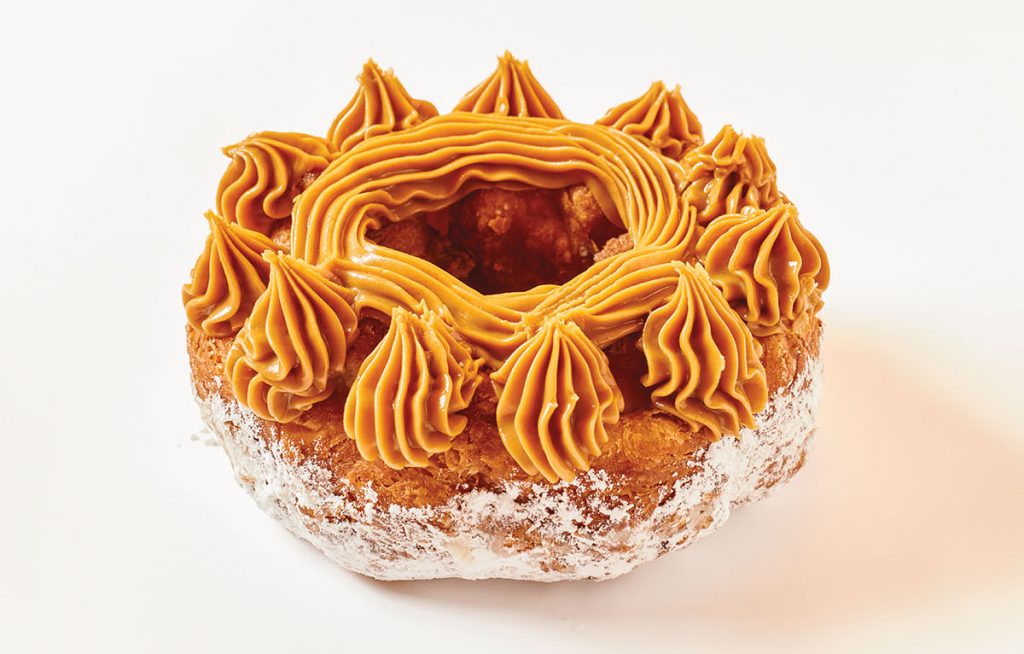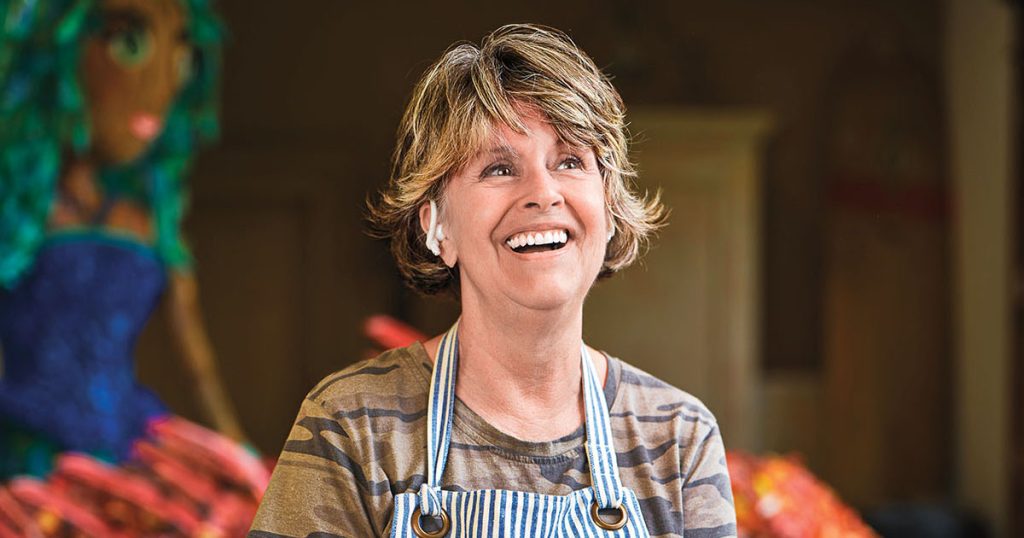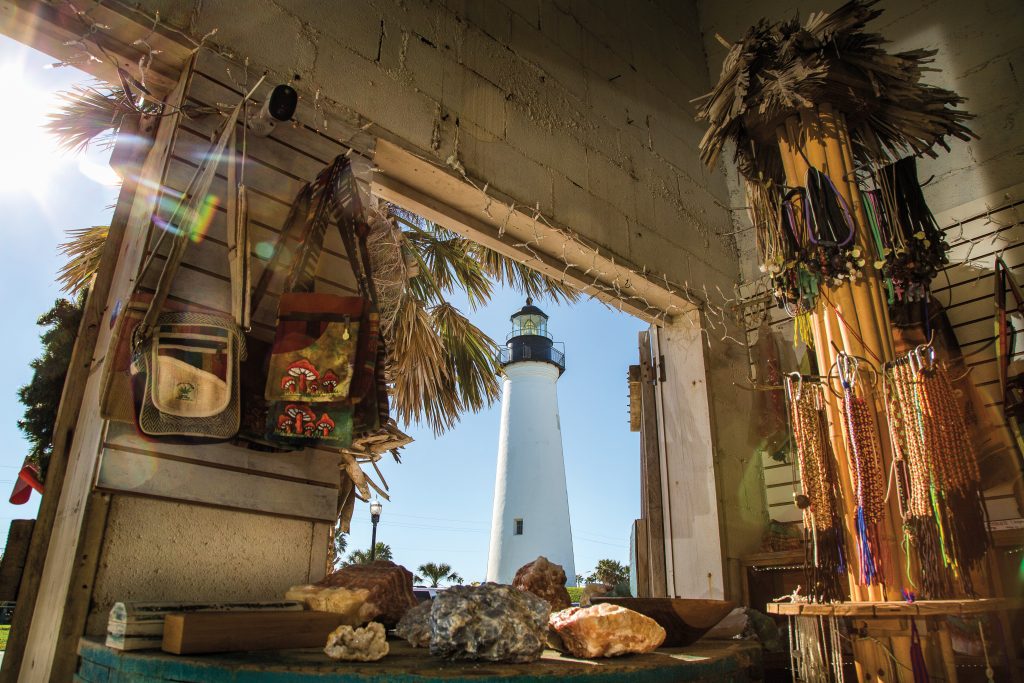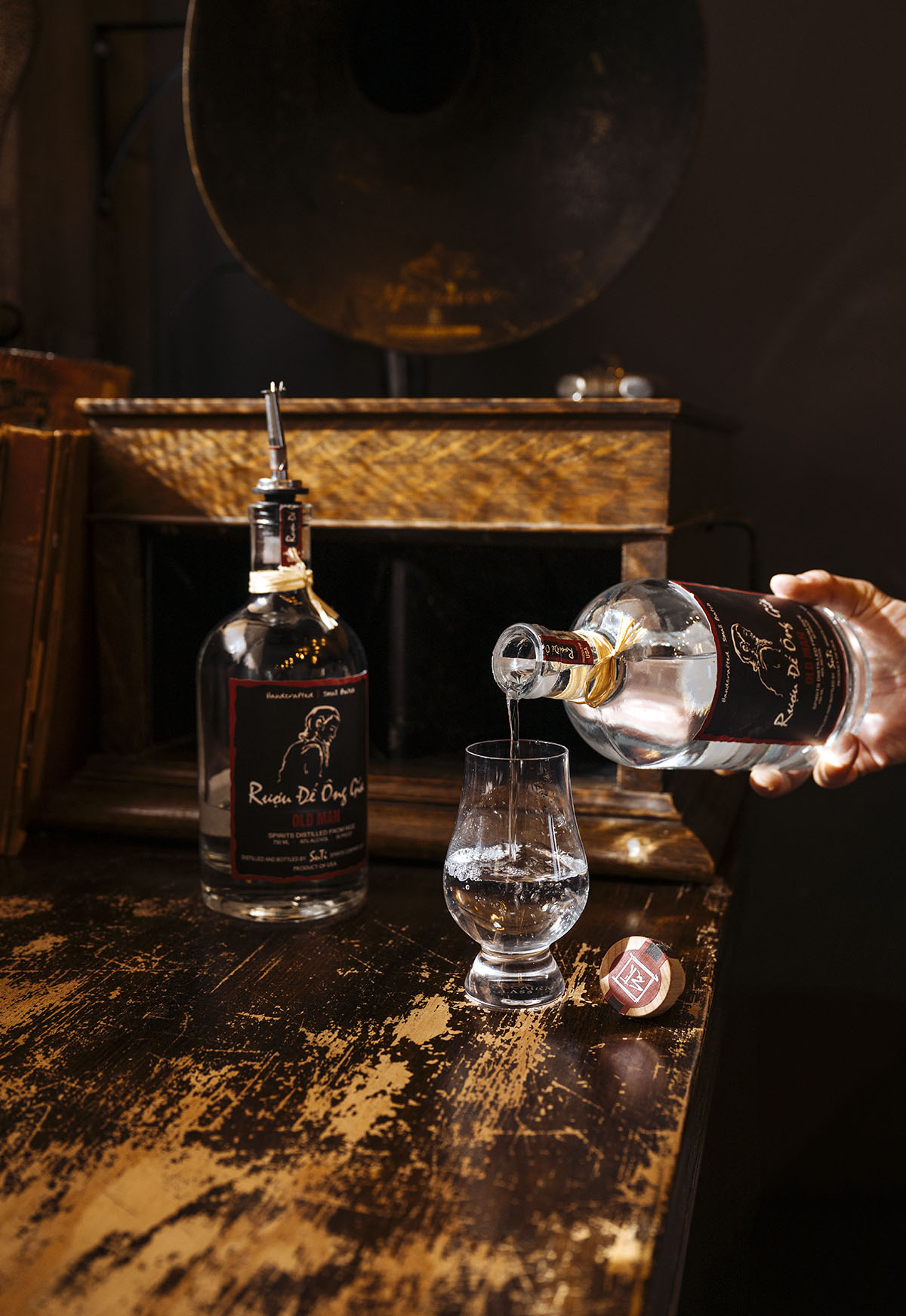
SuTi Craft Distillery is the only U.S. producer of Vietnamese rượu đế
The sweet, malty aroma of steamed rice greets you as soon as you hit the parking lot at SuTi Craft Distillery in Kennedale, about 10 miles southeast of Fort Worth. Following that buttery bouquet inside, you’ll find vintage memorabilia that evokes a bygone era: a rotary phone, a hand-crank phonograph, and an Akai reel-to-reel tape recorder warbling doleful Vietnamese blues from the 1960s. Beyond the public tasting room, in the 2,500-square-foot warehouse, co-owner and brewer Suy Dinh stands atop a ladder perched over a fermentation tank where he monitors the conversion of rice into the niche liquor of his homeland. In addition to those tanks, his tools include a still and a mash tun, the equivalent of a humongous rice cooker capable of steaming 650 pounds of rice at a time.
Suti Craft Distillery
528 W. Kennedale
Parkway, Kennedale.
Open Tue-Sat
1-6 p.m.
817-330-3976;
sutiusa.com
These instruments produce rượu đế, a spirit informally referred to as Vietnamese moonshine. Forbidden by the French during their colonization of the country from the 1800s to 1954, the elixir has a centuries-long history of being a bootleg product. Although Dinh and his business partner, Tien Ngo, were both born in South Vietnam, neither of them touched rượu đế until much later in life, long after they escaped their homeland’s post-war Communist government at ages 11 and 15, respectively.
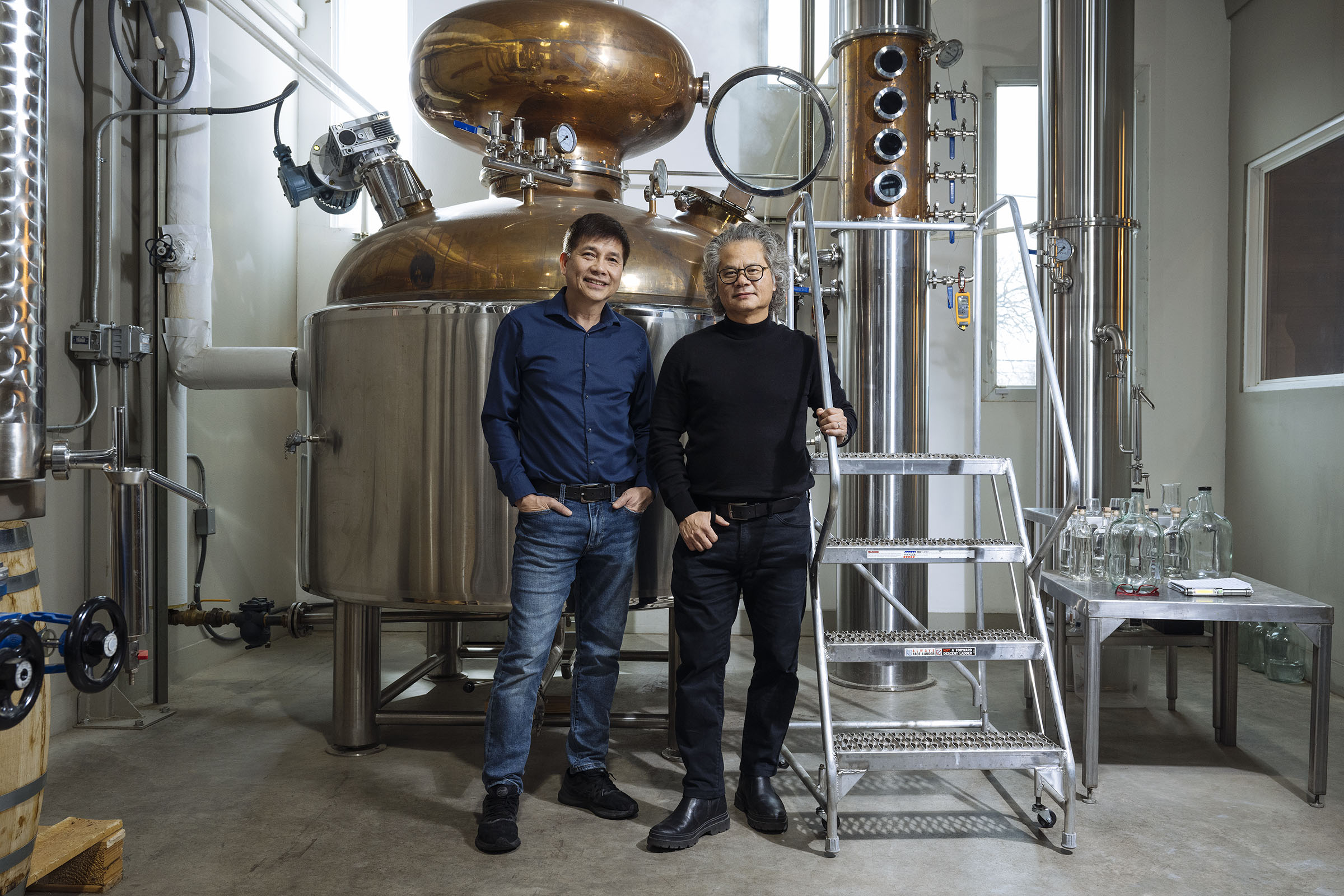
Brewer Suy Dinh (left) with his business partner Tien Ngo.
The two have been friends for more than 40 years now. They’re even connected through marriage—Dinh’s sister is married to Ngo’s brother. But the origins of their business partnership can be traced to a bike ride around Dallas’ White Rock Lake in 2016. On that auspicious day, Dinh brought Ngo some of the home-brew he’d been experimenting with for a few years. First trained by a friend who’d owned a distillery in Vietnam, Dinh was already showing a mastery of the craft—and Ngo was dazzled by the results. That moment would eventually spark the 2020 creation of the U.S.’s first Vietnamese distillery, which the duo believes to be the only such version in the world outside of their native country.
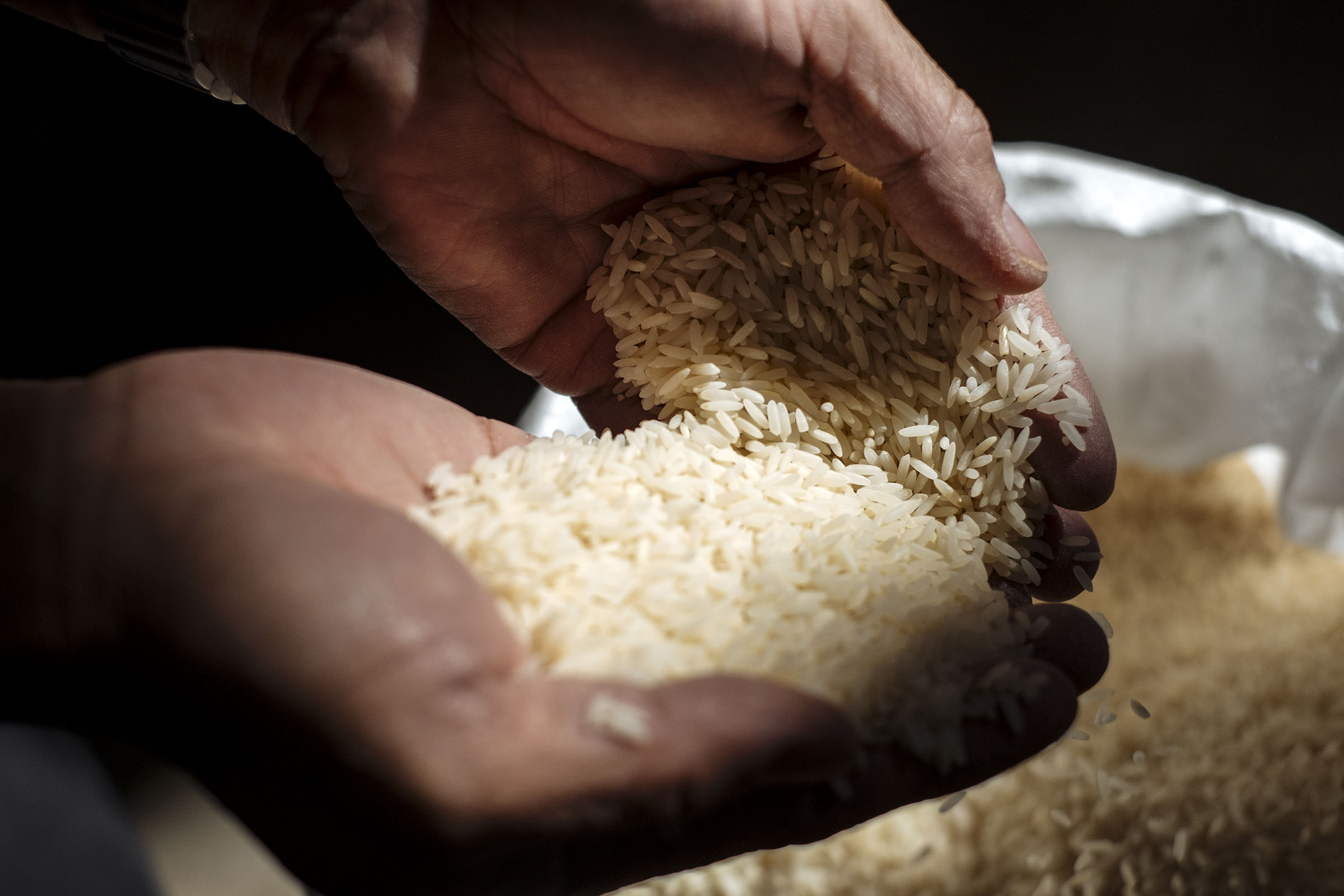
SuTi utilizes Jazzman aromatic rice developed by LSU
“This was something good that people just forgot about,” Ngo says. “We felt like if we didn’t bring back rượu đế, it would continue to decline.”
Despite the spirit’s long legacy, it’s little known outside of Vietnam. Even there, it’s not exactly considered a prestigious tipple. This is why many of Dinh and Ngo’s friends were incredulous of their plans to open a distillery dedicated to the drink. “They said, ‘Rượu đế is for the poorest of the poor, and you want to sell it for $40 per bottle? Nobody will buy it,’” Dinh recounts. “But we both knew that if you make a good product, people will come.”
Among SuTi’s various offerings is Old Man, an 80-proof spirit fermented from an aromatic rice variety called Jazzman that was developed by Louisiana State University. Ngo, who still works part-time as a commercial architect, oversees all the design aspects at SuTi, including the Old Man label that is adorned with a drawing of his father. In 2023, the nutty, tequila-like offering was bestowed the Best in Class U.S. Asian Spirit award by the American Distilling Institute. There’s also Lion 45, a 90-proof rượu đế made from a long-grain rice grown in Southeast Texas, as well as a small-batch whiskey called Bolero.
These efforts are not only helping to revive rượu đế—which they say older Vietnamese Americans had given up hope of ever finding again—but elevate its unregulated, working-class reputation. They recount war veterans who have visited the distillery in tears, overcome with emotion from rediscovering something that was such an integral part of their lives 40 or 50 years ago.
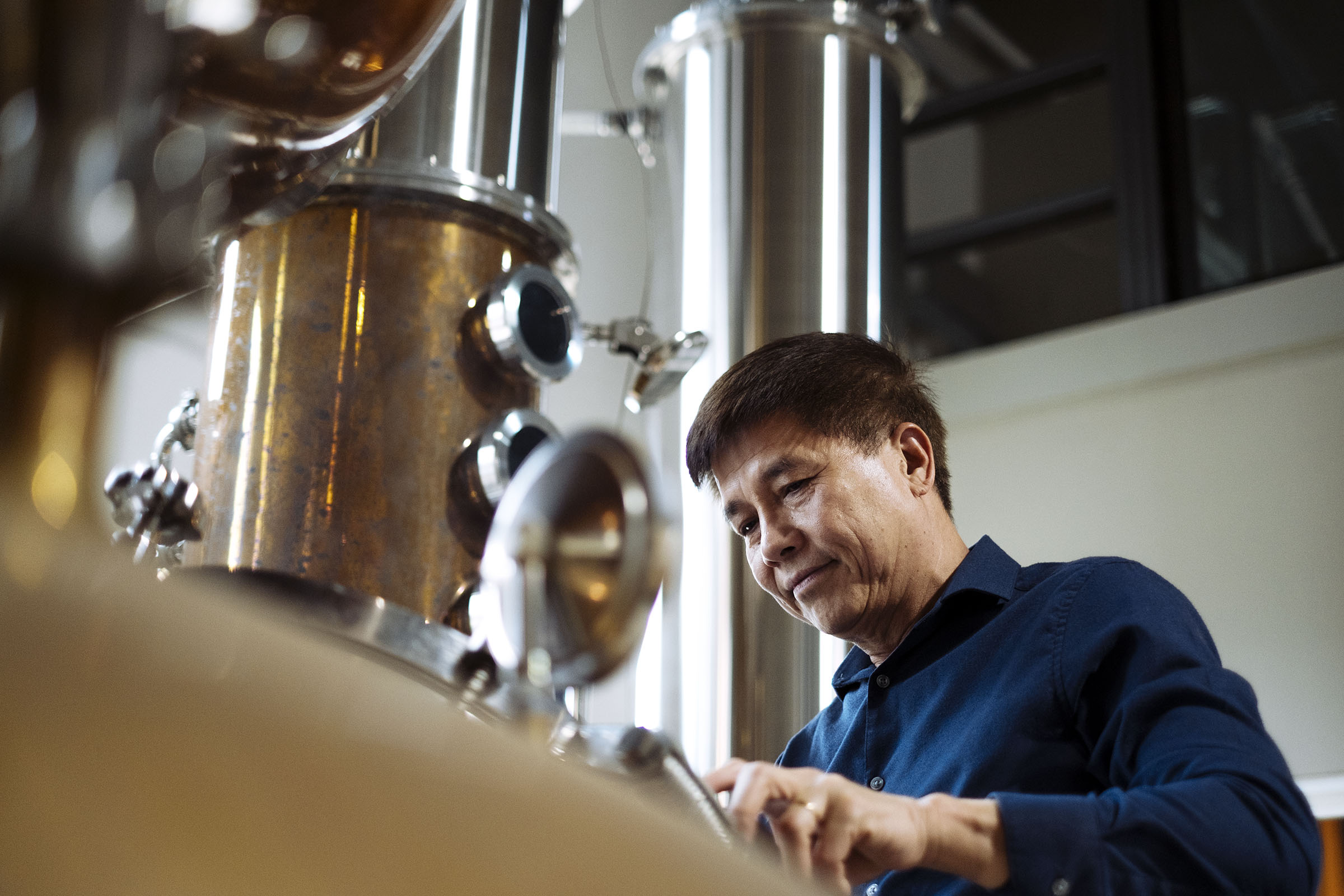
Dinh tends to a still
SuTi has also attracted visitors from VTV1, a state-owned Vietnamese news channel, as well as actress Kieu Chinh, who starred in the 1993 film The Joy Luck Club. Dinh and Ngo say the distillery has tens of thousands guests a year, some making the pilgrimage from as far away as Norway, Switzerland, and Australia. And with a license permit that only allows them to sell two bottles per guest each month, groups often pack into minivans in order to bring home the maximum allotment.
Last December, Anthony Nguyen, a nail salon technician from Portland, Oregon, arrived before Dinh and Ngo had even unlocked the doors to their facility. SuTi was his first stop after flying into DFW airport. For more than an hour, he sat at the bar chatting with the distillery owners in Vietnamese, while trying the rượu đế he’d heard so much about back home.
Although SuTi’s offerings are meant to be sipped, Nguyen insisted on initiating all newcomers in a customary toast while taking shots. As Dinh brought out bottles and poured the upgraded moonshine into plastic cups, Nguyen led round after round, beaming as he raised his voice. “Một, hai, ba, dzô!” Or, One, two, three, cheers!
